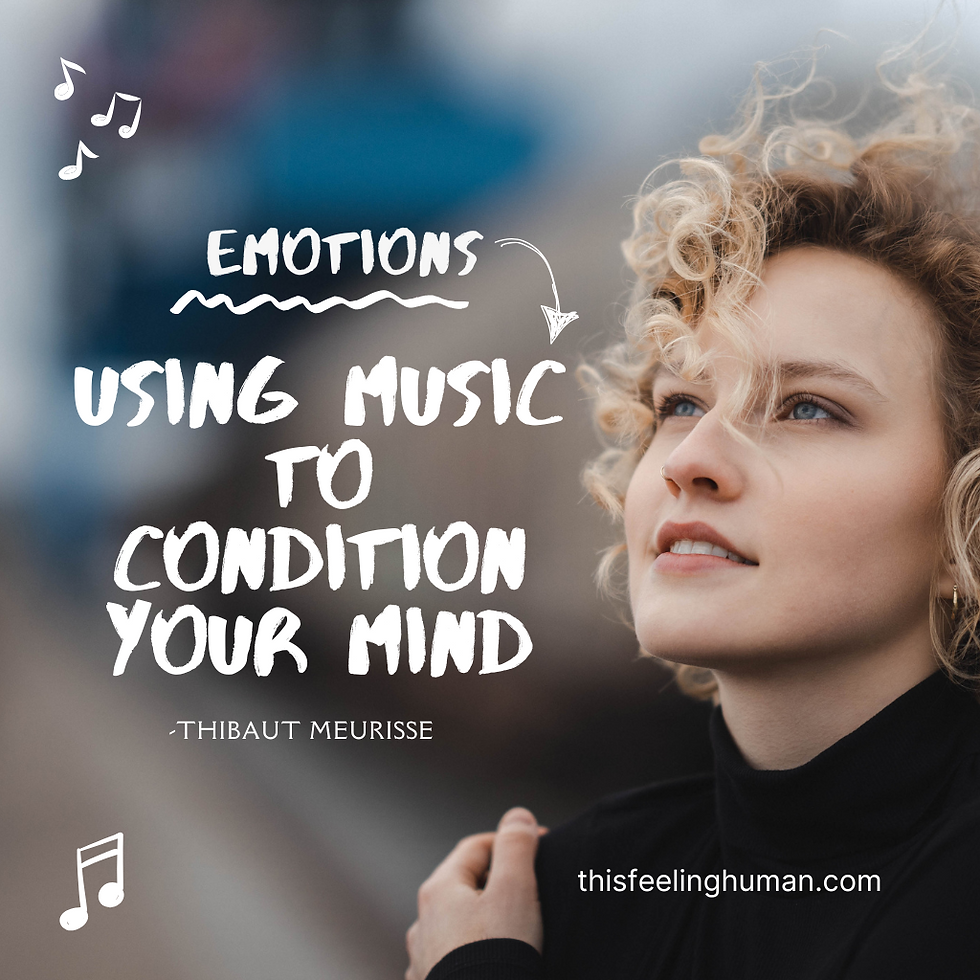Music isn’t just background noise; it’s a powerful tool that taps into our emotions, memories, and even our moods. From the upbeat pop that makes you dance to a soulful ballad that stirs up tears, music connects us to our feelings in ways few other things can. Here’s a look at how music affects our emotions and why it’s such a vital part of life.
Why Music Hits Us So Deeply
When you listen to a song that resonates, it’s not just about sound—music triggers areas of the brain responsible for emotions, memory, and pleasure. These brain areas, like the limbic system, even release dopamine (the “feel-good” chemical) when we listen to music we love. That’s why a favorite song can bring back memories, spark emotions, or simply make us feel good.
How Different Music Influences Our Mood

Uplifting & Energetic: Upbeat music with a fast tempo often makes us feel energized and happy. That’s why pop, hip-hop, or dance tunes are so popular for workouts and parties—they make us want to move and feel good.
Sad & Reflective: Slow, minor-key songs bring out sadness or nostalgia. This kind of music can help us process emotions by creating a safe space for our feelings, whether through a sad ballad or a soulful instrumental.
Calm & Relaxing: Soft, mellow music like jazz or classical can help you unwind and reduce stress. Many people use it for relaxing at the end of a long day or even to help with sleep.
Angry & Empowering: Some genres, like rock or heavy metal, can act as a release valve for stress or frustration. Contrary to stereotypes, many people find these intense beats help them express and process difficult emotions.
How Lyrics Connect Us
When lyrics speak to our own experiences or struggles, the connection feels intense and personal. A song about heartbreak, joy, or overcoming challenges might echo exactly what we’re going through. In a way, music gives us words and a melody when we need them most, almost like having a friend who “gets it.”
Why Certain Songs Become Personal Anthems
Songs often become part of our identity when they connect with a specific life event—a wedding, a road trip, or even just a tough time we got through. These “personal anthems” bring us right back to those moments whenever we hear them, reminding us of where we’ve been and sometimes even where we’re going.
Music as Self-Care and Therapy
Music therapy is real, and it’s effective for stress, anxiety, and other challenges. Creating playlists for different moods—calming tracks for relaxation, high-energy songs for motivation, or even slower tunes for processing sadness—can help us manage our emotions and care for ourselves in simple but powerful ways.
How to Use Music to Train Your Mind
Music can be a powerful tool for shaping focus, relaxation, motivation, and resilience. By pairing specific types of music with daily activities, you can quickly set your mind to the desired state. Here’s how to make it part of your routine.
Why Music Works for Mental Conditioning
Listening to music triggers mood-boosting chemicals in the brain, making it an easy way to adjust your mindset. When you consistently use certain types of music for specific activities, your brain begins to associate the sounds with those mindsets, whether it’s upbeat tunes for energy or calming sounds for relaxation.

Using Music for Focus
When it comes to productivity, instrumental music works best, as lyrics can be distracting. Curate a playlist specifically for work or study sessions and start each session with a favorite “cue song” to signal that it’s time to focus. Over time, this playlist will act as a mental shortcut, helping you settle into work mode faster.
Music for Relaxation
For unwinding, go with slow, soothing tunes like classical or ambient music. Establish a routine by playing the same playlist each night or after work, letting your brain recognize it as a signal to relax. Adding deep breathing exercises while listening reinforces the calming effect and strengthens the mind-body connection.
Music for Motivation
Upbeat, positive songs are great for boosting mood and energy. Create a “power playlist” filled with tracks that make you feel happy, strong, and ready to tackle challenges. Listening to this playlist in the morning or before a big task can set a positive tone and give you an extra dose of confidence.
Using Music for Emotional Resilience
For times when you need to process emotions, listen to songs that reflect your current mood instead of trying to suppress it. Tracks with resilient lyrics, especially those about overcoming obstacles, can reinforce strength and provide comfort, helping you feel understood and supported.
Building a Lasting Routine
Stick to using the same playlists for specific goals, add physical cues like a specific chair or a candle to enhance conditioning, and explore different tempos and genres to see what works best for you. Over time, music becomes a reliable ally in shaping your mindset, making it easier to feel calm, focused, or motivated whenever you need it.
Conclusion
Music doesn’t just make us feel things; it also helps us heal, process emotions, and connect with ourselves. Whether it’s getting through a tough time or just wanting to feel a little lighter, music has a unique way of helping us find our emotional balance.
That’s why we developed Emotions-Based Coaching. With Emoli Cards, we help you gently uncover the deeper stories behind your emotions, giving you clarity on what’s going on beneath the surface. Plus, our Calm3D immersive tool makes it easier to manage your mood and find a sense of calm, even on tough days.
So, the next time you’re feeling a certain way, try putting on a song that fits your mood. It might be exactly what you need.
Comments